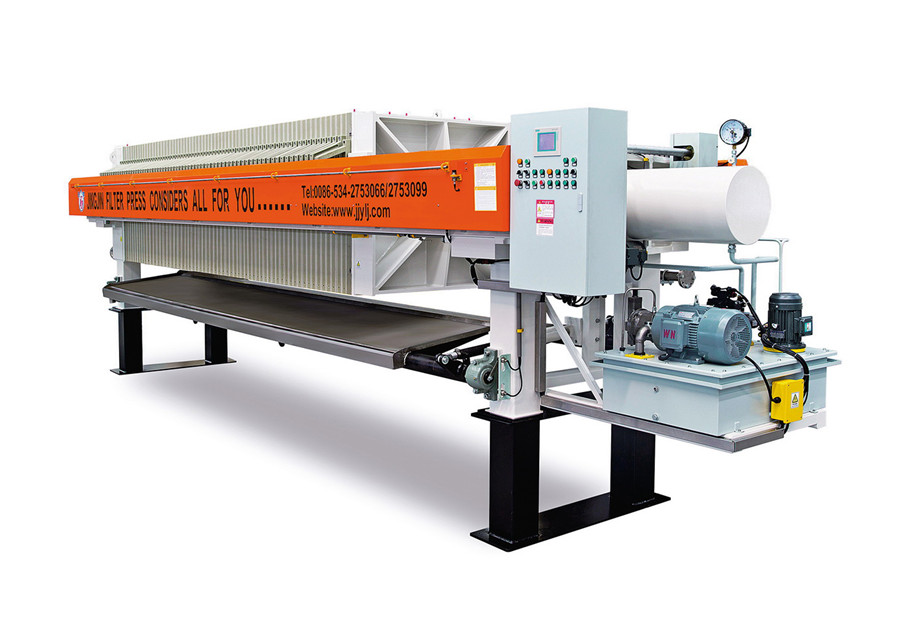Filter presses are an important part of wastewater treatment, helping to dewater sludge and recover process water. However, there are ways to optimize the performance of filter presses through automation and the use of flocculants.
Additionally, automation and flocculants are two key ways to optimize the performance of filter presses for wastewater treatment and sludge dewatering. Automatic presses provide benefits of higher throughput, less labor and more consistent output. At the first, we will introduce auto type filter press below.
Automatic Filter Presses

Fully automatic filter press can provide several benefits over manually operated presses:
- Higher Throughput: Automatic sequence control allows presses to run continuously with little downtime between cycles. This increases the volume of sludge that can be processed per hour.
- Less Labor: Automated presses require minimal operator intervention once started. This reduces labor costs.
- Consistent Performance: Automatic control of parameters like plate pressure and cycle timing ensures more uniform filter cake quality and dewatering efficiency.
- Ease of Use: Automatic presses are simpler for operators to start up and monitor, with less adjustment of manual controls needed.
Typical components of an automatic filter press include:
- PLC control panel for automated sequencing and programming press parameters.
- Pressure sensors to monitor hydraulic pressure and ensure it remains within set points.
- Photoelectric sensors to detect plate positions for cycle timing.
- HMI touchscreen for operators to monitor and control the press from one location.
- Hydraulic valves to precisely control oil flow to the cylinders.
Fully automatic presses offer the best combination of throughput, efficiency, uniformity and ease of use. However, even semi-automatic presses with some programmable functions can provide improvements over manual operation.
Flocculant Preparation And Addition
The addition of synthetic flocculants before pressing can also boost the performance of filter presses. Flocculants are polymers that bind suspended solids together to form larger clusters, or flocs. This leads to:
- Faster Dewatering: The larger flocs allow water to drain out more easily between the filter plates.
- Higher Solid Capture: More solids remain within the filter cloth versus passing through with the filtrate.
- Lower Cake Moisture: The tighter flocs hold less water, resulting in drier filter cakes.
To apply flocculants, an anionic or non-ionic polymer is mixed with water in a flocculant preparation machine to create a stock solution. This is then mechanically or manually dosed into the sludge feed stream ahead of the filter press.
Properly preparing and dosing flocculants requires determining the:
- Optimal polymer type for the given sludge
- Proper concentration of the stock solution
- Correct dosage rate based on the sludge flow volume
Once set, the flocculant system should provide consistent, automatic addition of polymer to maximize the benefits for filter press operation. Both automatic filter press and proper flocculant addition work together to improve dewatering efficiency, clarity of filtrate, and lower costs.